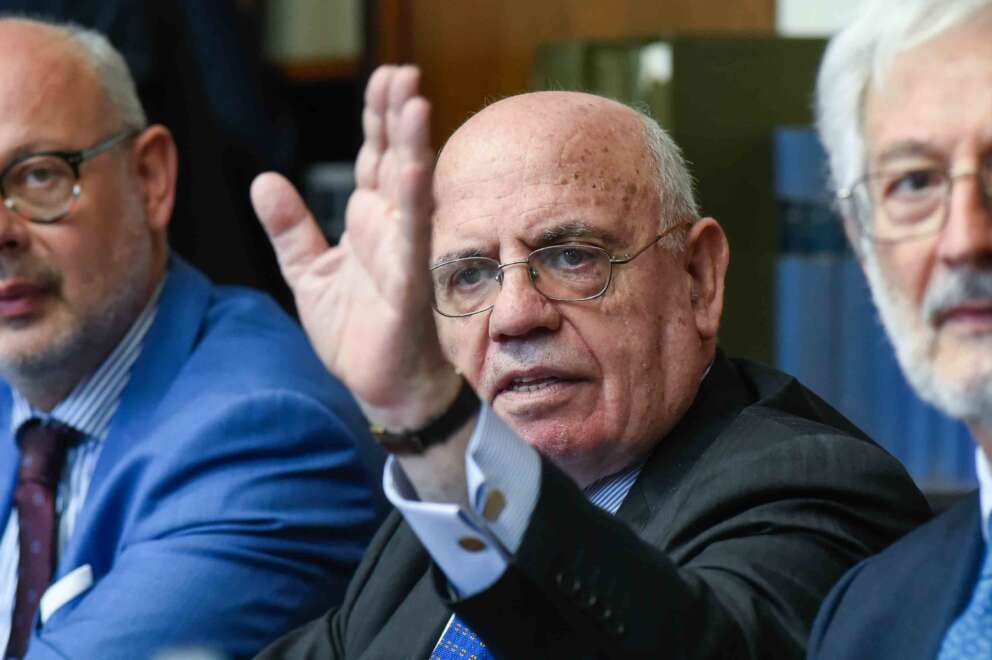The popular banks have been alongside citizens for 75 years

The International Confederation of Popular Banks
The anniversary being celebrated in Marseille is an opportunity to remember the vital importance of popular credit, especially in uncertain times like today's.

The Assembly of the International Confederation of Popular Banks will be held in Marseille from 4 to 6 June to celebrate the 75th anniversary of its birth. This anniversary has a special meaning for Italy too. In addition to the theoretical and practical contribution of the Italian economist and statesman Luigi Luzzatti to the birth of many Popular Banks in Europe and beyond, the international movement of Popular Credit has been able to count on the contribution of the Italian Popular Banks, which have played an essential role in the birth and development of the organization based in Brussels.
On June 24, 1950, the Treaty of Saint-Malo was signed, which created the International Confederation of Popular Credit (which later became Cibp - International Confederation of Popular Banks), and we were there as a founding member. A few months later, in October 1950, Rome hosted the Congress described in the October-November 1950 issue of the Banking Review as "an incessant work aimed at reweaving bonds of thought, interests, and mutual understanding between peoples, a work that requires perseverance and great patience and that [...] has been taking shape since 1946 under the pressure of political and economic needs, but also of the generous impulse of eminent men" . It was 1950 and the Treaty of Rome establishing the European Economic Community, the embryo of today's European Union, would arrive only seven years later.
Seventy-five years have passed since then. Years in which the international movement of Credito Popolare has grown to become a protagonist of global cooperation with over 250 thousand institutions, 600 million members and one billion customers, 14,700 billion euros of collections and 9,800 billion euros of investments, equal to 15% and 10% of global GDP respectively. Important numbers that give an account of the extent of global banking cooperation, a constantly evolving reality that is experiencing particularly rapid growth dynamics. Seventy-five years in which, on the one hand, a globalization has imposed itself on the world, today in crisis, which has increased inequalities by building an increasingly fragmented society, on the other, perhaps precisely as a response to the distortions of globalization, our movement has not only shown all its capacity for resistance and resilience but has spread and strengthened, meeting the need of our society to return to being a community, also with regard to the banking world.
All over the world, the values of cooperation in general and of banking in particular are being rediscovered and regained strength, as demonstrated by the many initiatives marked by great dynamism and multiple forms and declinations. Therefore, offering cooperative banks a network to improve their collaboration, sharing information, experiences and training, to share their specific weight in the respective institutions at every level, state and supranational, and to contribute to the search for economic and social well-being, in particular to the improvement of the living conditions of workers, entrepreneurs and families: this is the task that is needed and that awaits us in the near future.
An extraordinary opportunity also comes from the United Nations General Assembly which has declared 2025 the International Year of Cooperation. The global impact of the cooperative model on the economy and in particular on the real economy, in light of the great geopolitical uncertainty, can in fact represent a valuable contribution to addressing open challenges, with a view to implementing the Sustainable Development Goals (SDG) by 2030, as also underlined by the Secretary General of the UN, António Guterres , highlighting the importance of the cooperative world in the context of the upcoming Second World Summit for Social Development ( WSSD2 ), scheduled for November 2025 in Qatar. The UN's choice to shine the spotlight on this reality of social and economic life arises from a recognized and widespread need of our society, increasingly globalized, commodified and de-subjectivized which, however, precisely for this reason, returns to need community and finds in international cooperation a way to rediscover the values of solidarity and brotherhood. A suggestion, therefore, but also a challenge.
"The credit cooperative is an invisible international league, dedicated to the public good. We, so different in origin, tendencies, climate, have this common ground of reciprocity in savings that unites us. To lift up workers through credit, which is a moral force before becoming an economic force, to convince them that their economic future lies in this moral force, this is our mission, which is enough to justify our solidarity" . With these words, in 1889 Luzzatti greeted the first Congress of the French Popular Banks. Words that remain impressively current. We are in another century, in another millennium, we could say, even in another world, but the banking cooperative continues to keep intact the reason for its existence thanks to the values that constitute its foundations and backbone: cooperation and subsidiarity, values inherent in the nature of the human person and that the founders considered indispensable to build a Europe of peace and solidarity.
*Secretary General of the National Association of Popular Banks
l'Unità





